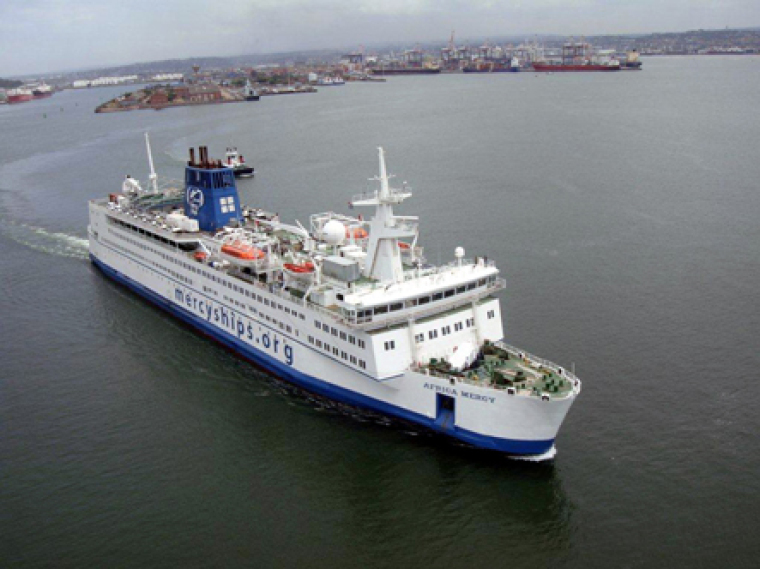
With six operating theatres and an 80-bed hospital the world's largest charity hospital ship with a crew of more than 400 volunteers will spend ten months in Sierra Leone bringing hope and healing to some of the world's poorest people.
It will be the fifth assignment by Mercy Ships to the country which continues to recover slowly from an eleven-year civil war that ended in 2002. Ten of thousands of people died during the period, and more than two million, about one-third of the population, were displaced. United Nations peacekeepers were responsible for the nation's security until the end of 2005, when the military took control until elections in 2007.
Since then, the government has concentrated its priorities on development, creating jobs and seeking to rid the country of endemic corruption. Last year the United Nations Security Council lifted the last remaining sanctions against the nation, with the government re-establishing control over the territory and disarming and demobolising former rebel fighters.
From the bottom of the table of nations ranked by the United Nations Human Development Index, Sierra Leone is now placed at 158 among 169 countries surveyed. There has been substantial economic growth in recent years, but the major challenges continue to be poverty and unemployment. The country possesses substantial mineral, agricultural and fishery resources, but there is inequality in income distribution. Nearly half of the working age population is engaged in subsistence agriculture.
The population is 5.2 million, of whom it is estimated as many as 70 per cent live below the poverty line. Life expectancy is 46 years, while the median age of the population is 19. More than 40% of the population is under the age of 14. Only 35% of the people can read and write. The infant mortality rate is high. Almost one in five children dies before reaching the age of five. There is a very high risk of major infectious diseases, and it is estimated there more than 50 thousand people living with HIV/AIDS. According to the World Health Organisation, there are two physicians per 100,000 people.
Mercy Ships volunteers will be working in co-operation with local health authorities and local groups in Sierra Leone in a range of medical and developmental programs. Free surgeries onboard the hospital ship will correct disability, deformity and blindness. Dental and community health projects will be carried out in a wider area, along with health and nutritional education. Local health professionals will be trained. Other programs include water supply and sanitation, agriculture, education, construction and development.
Advance teams have been working in Sierra Leone for some months, preparing the way for the arrival of the Africa Mercy. A number of pre-screening days have taken place around the country, seeking out potential patients for free life-changing surgery. The assignment by Mercy Ships volunteers has been advertised widely, and several major screening days are planned during the ten-month visit.
Mercy Ships is a global charity that has operated hospital ships in developing nations since 1978 providing free health care and community development services to the forgotten poor. Following the example of Jesus, Mercy Ships brings hope and healing to the poor. Working in partnership with local people, Mercy Ships empowers communities to help themselves. The result is a way out of poverty.
The emphasis is on the needs of the world's poorest nations in West Africa, where the world's largest charity hospital ship Africa Mercy, with a crew of more than 450 volunteer, provides the platform for services extending up to ten months at a time. Mercy Ships works on land-based projects in Sierra Leone in partnership with other organisations, while teams also work in several nations of Central America and the Caribbean. Mercy Ships Australia, one of 15 international support offices is based on the Queensland Sunshine Coast
To find out more about Mercy Ships Australia, visit CTindex.